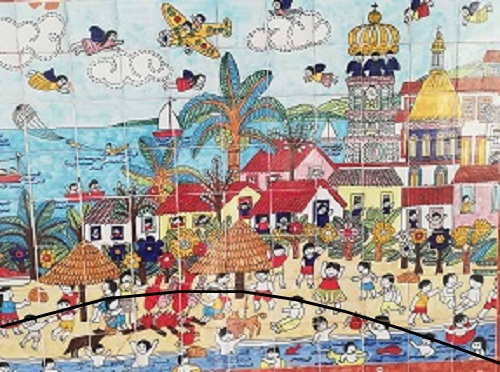
Page 63 of 89

Why is it that international organisations want to ‘fight poverty’ more than they want to look at inequality?
Inequality | Wall Street International Magazine (wsimag.com)
The most recent report of GFI on illicit financial flow in developing countries! Work to be done!
ITUC calls for governments to ratify and implement the International Convention on the Protection of the Rights of All Migrant Workers and Members of Their Families (1990), ILO Conventions 97 and 143, and ILO Recommendation 202 on Social Protection Floors in order to ensure the extension of social protection security to all members of society, irrespective of contribution history.
Freedom of movement and access to social protection are both internationally recognised human rights, as enshrined in the Universal Declaration of Human Rights and other international legal instruments.
The world has witnessed an increase in migration in recent years. In 2019, according to the UN, some 270 million people, or around 3.5% of the world’s population, were migrants.
… the world looks a lot different through a lens of social and economic rights…
Most interesting and most shocking findings on the world’s inequality …
Everyone needs social protection along their life! More than half of the world population has no access to social protection. These people are left to their own devices when they are ill, unemployed, pregnant or old. However, social protection is not a privilege, but a human right. It is also the best insurance against inequalities, poverty and exclusion.To guarantee this right to social protection for all, close to 100 social movements mobilize across 24 countries in Africa, Latin America, Asia and Europe. They join their forces in the global network INSP!R, the International Network for Social Protection Rights.Current social protection policies leave too many people unprotected and need to be transformed, to include all working women and men in both the formal and informal economy, those in precarious employment and those unable to perform paid work.INSP!R claims its role as a key actor for structural social changes.
ByFlorian Juergens-Grant, Laura Alfers
While mainstream debates tend to view the informal economy as a residual component, we know that from an employment perspective it is actually the norm: 61 per cent of all working people in the world and 70 per cent of those working in middle- and low-income countries are in informal employment.
We social protection people sometimes speak of the ‘missing middle’ when talking about social protection coverage for informal workers. Calling in the ‘missing majority’ may be more appropriate.
Informal workers are mostly excluded from social protection systems — with dire consequences during COVID-19
Despite facing higher risks of poverty than their formally-employed peers, few informal workers have access to social protection.
” We publish a new policy paper that collects Global Green New Deal proposals responding to climate, social and economical emergencies with global justice
In recent years, the proliferation of green deals and the growth of a green mainstream in political, economic and financial action has shaped the formation of green agendas and the ways we imagine different futures. As is discussed in Green deals in a time of pandemics: the future will be contested now, the complexity of constructing wide-ranging policy proposals has been challenging, opening up public debates and generating social tensions. Debates that have not only opened the doors to proposals for the commodification and depoliticisation of the struggle against the socio-ecolgoical crisis, but have also offered a window of opportunity to propose radical changes from popular, feminist an decolonial agendas for changing the world at the grassroots level.”
The world is becoming more authoritarian as autocratic regimes become even more brazen in their repression. Many democratic governments are backsliding and are adopting authoritarian tactics by restricting free speech and weakening the rule of law, a trend exacerbated by the Covid-19 pandemic.
These are the key findings of the “The Global State of Democracy Report 2021 – Building Resilience in a Pandemic Era”, published on 22 November 2021 by the International Institute for Democracy and Electoral Assistance (International IDEA), an intergovernmental organization based in Stockholm
© 2025 Global Social Justice
Theme by Anders Noren — Up ↑


